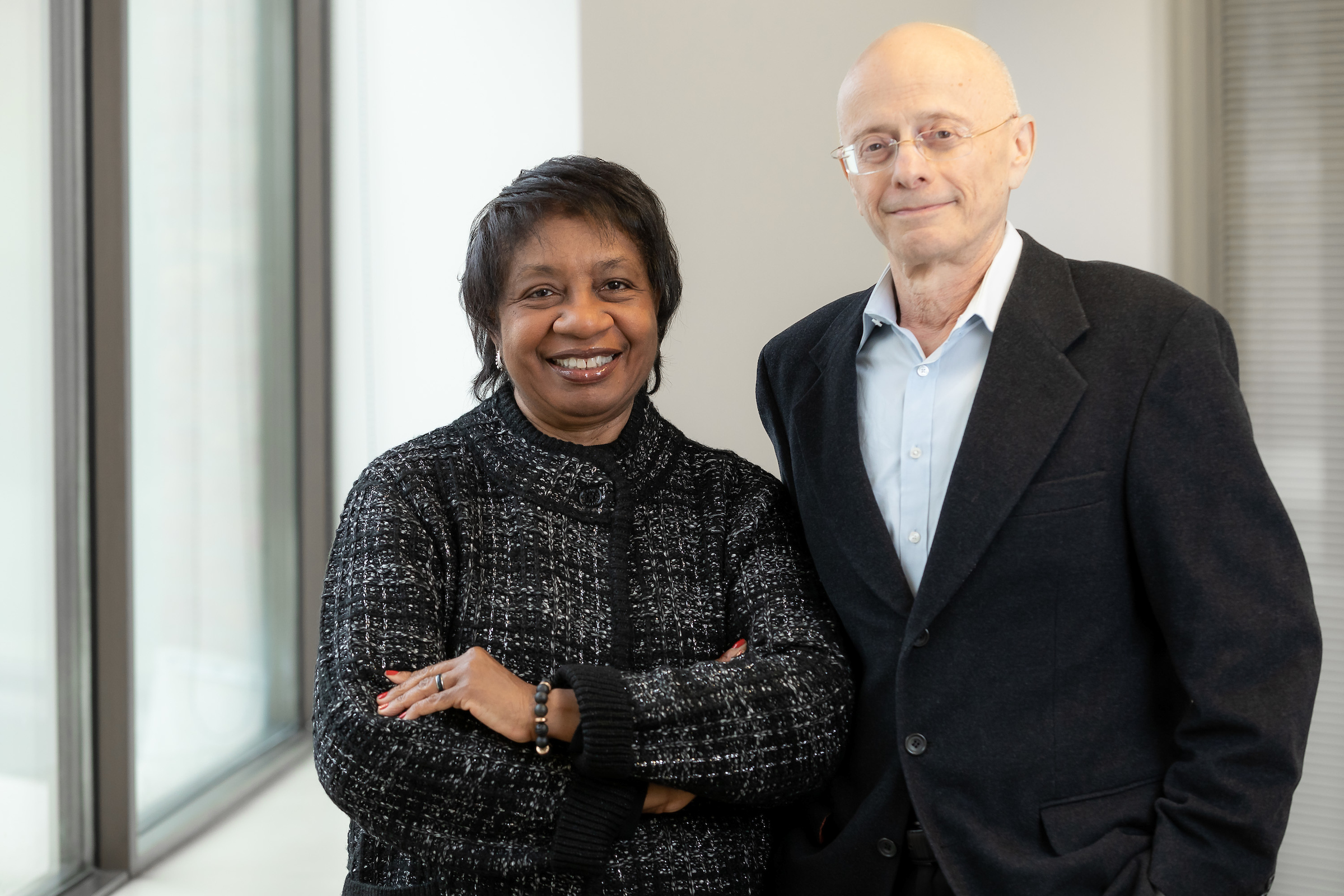 LaVome Robinson (left) and Leonard Jason are clinical and community psychologists in the College of Science and Health. Together, they work on violence prevention in Chicago Public Schools through the Success Over Stress Violence Prevention Project, which is funded by a $6.6 million research grant from the National Institute of Mental Health. (DePaul University/Jeff Carrion)
LaVome Robinson (left) and Leonard Jason are clinical and community psychologists in the College of Science and Health. Together, they work on violence prevention in Chicago Public Schools through the Success Over Stress Violence Prevention Project, which is funded by a $6.6 million research grant from the National Institute of Mental Health. (DePaul University/Jeff Carrion)For decades, community psychologists have used their psychology training to identify solutions to challenging problems like neighborhood violence and undiagnosed illnesses across large populations. At the forefront of this field is Leonard Jason, a professor of clinical and community psychology and director of the Center for Community Research at DePaul.
“I was around during the Vietnam War, and it was a time filled with social change movements like the civil rights and women’s movements," Jason says. "At that time, most psychologists were trained to deliver what is called a traditional medical model treatment with one-on-one psychotherapy, which involves waiting for clients to visit their offices."
He and other community psychologists noticed several problems with this model.
“Most people were being treated at a time when their disorders were more entrenched and long-standing, and these might be the times when it was most difficult to bring about change. This was also a passive model and did not attempt to prevent the problem in the first place,” he says. “Early in my career, I wondered how I could bring a community psychology perspective to my work as a psychologist. And that is when I started thinking about prevention and policy-level interventions that focused on social justice."
At its core, community psychology centers on three aspects: preventing problems, rather than treating problems in both mental and physical health areas; concentrating on the larger ecosystem and the multiple levels of intervention needed beyond the individual; and a social justice facet that focuses on providing equal access to treatment and resources.
“Community psychologists are like community organizers,” Jason explains. “But they are different from them in that they use theory and rigorous research methods to bring about structural systems change. We are agents of change as we take a public health approach to psychology.”
The public health approach focuses on prevention, bringing in community members to actively collaborate on how to bring about social justice change. It’s about understanding the person in context, and not just focusing on the individual, according to Jason.
“In our work, we don’t parachute ourselves as experts into a community, but rather collaborate with community groups to use their wisdom and guidance to identify solutions to problems. This is what differentiates us,” Jason says.
DePaul a pioneer in the field
DePaul’s clinical community psychology program was founded in 1967, shortly after the birth of the field of Community Psychology in the mid-1960s, and it was one of the first such programs founded in the U.S.
DePaul is now the only school in the world where there is doctoral training in clinical-community psychology and community psychology, and an undergraduate concentration in community psychology. Starting in the fall, DePaul is adding a master’s program in community psychology, and current DePaul undergraduates can enroll in a combined degree program to receive both a B.A. and M.S. in community psychology.